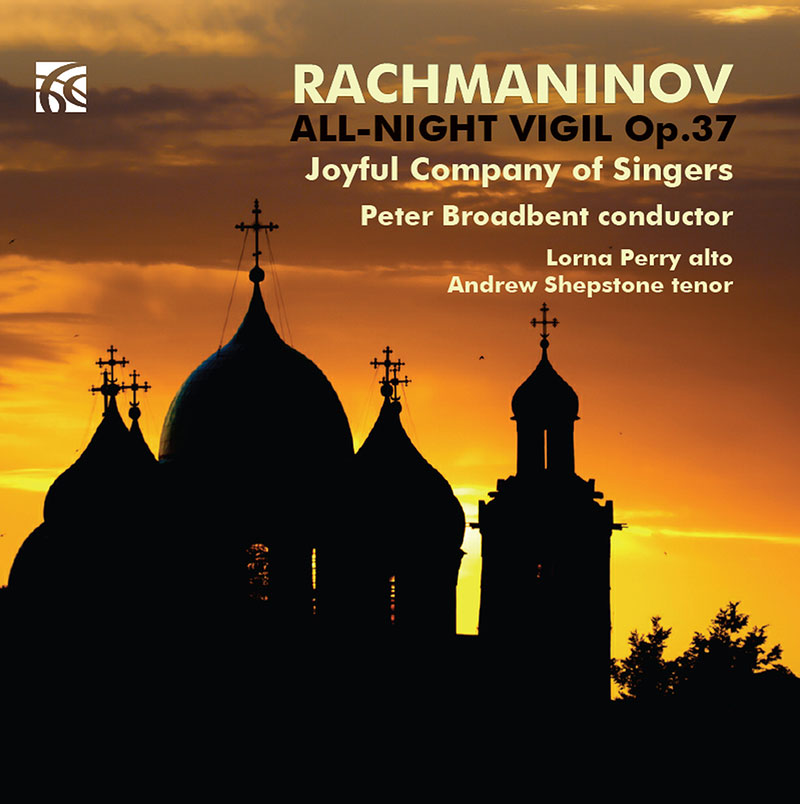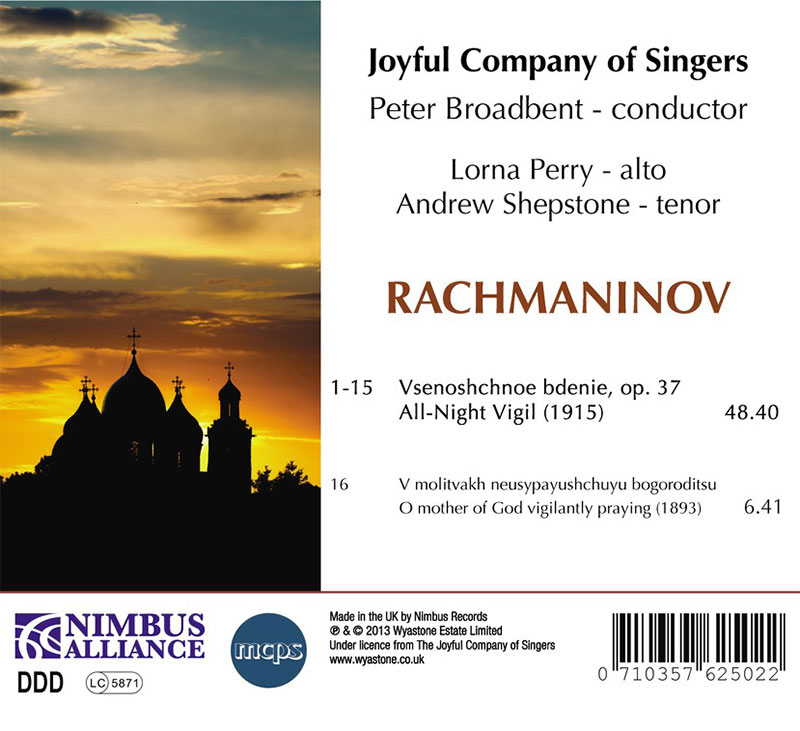Logowanie
Dziś nikt już tak genialnie nie jazzuje!
Bobby Hutcherson, Joe Sample
San Francisco
SHM-CD/SACD - NOWY FORMAT - DŻWIĘK TAK CZYSTY, JAK Z CZASU WIELKIEGO WYBUCHU!
Wayne Shorter, Freddie Hubbard, Herbie Hancock, Ron Carter, Elvin Jones
Speak no evil
UHQCD - dotknij Oryginału - MQA (Master Quality Authenticated)
Chesky! Niezmiennie perfekcyjny
Winylowy niezbędnik
ClearAudio
Double Matrix Professional - Sonic
najbardziej inteligentna i skuteczna pralka do płyt winylowych wszelkiego typu - całkowicie automatyczna
RACHMANINOV, Joyful Company of Singers, Peter Broadbent
The Theotokos / Ever-Vigilant in Prayer / All-Night Vigil

- Joyful Company of Singers - choir
- Peter Broadbent - conductor
- RACHMANINOV
This is the second recording of this work I have encountered in 2013. That from the Latvian Radio Choir on the Ondine label (see review) still appears at No. 19 on the UK Specialist Classical Bestseller Chart list at the beginning of December after a presence of many weeks. That said, in terms of sheer unit volume of sales we all know what that can mean. This is a brisk performance to say the least, the timing of 48:40 certainly the shortest I’ve ever come across, undercutting the Latvian recording by about 14 minutes. I’m all for cutting away over-reverence and churchy lingering over cadences, but this is an aspect of Peter Broadbent’s recording to which you will need to become accustomed if you are used to more commonly proportioned renditions. Such brevity would normally come with compact forces, but the listing for the Joyful Company of Singers comes in at around 46 voices, which is pretty substantial for a group calling itself a chamber choir. Broadbent does however prevent this large swathe from sounding stodgy with a light touch in dynamics and a nicely balanced sound. You will note that soloists are shown on the cover, and indeed, this is the way Lord, Now Lettest Thou is balanced. In this case the rather nasal and rather under-pitched tenor of Andrew Shepstone cuts through with aquiline keenness. In the Latvian version such solos emerge from the choir, the contribution retaining anonymity. Lorna Perry is more elegant and understated in Bless The Lord, O my soul. The choir doesn’t have a particularly Russian sound, with the low basses also fairly low in the overall texture. Nevertheless, I enjoy its refinement and colour in the softer sections. There are some silvery upper voices which stick out a little, but in general this is fine choral singing and full of passion where the music demands. I can’t say much about the Russian pronunciation, but to this inexpert ear everything sounds convincing enough. You can get used to the swift tempi. I would argue against these performances giving a perfunctory impression once you have tuned into the nature and detail of each movement. If however you feel that this music should have a greater sense of mystery and nocturnal atmosphere then you may find yourself struggling with the sprightly character of many of these movements. The beautiful penultimate Thou Didst Arise from the Tomb is one of those musical moments which can have a sense of timeless wonder. I would have liked a little more time spent pointing out some of its harmonic nuances. These movements deserve just a little more space if nothing else to provide contrast with the really pacey numbers such as the final To Thee, O Victorious Leader, one of the few in which the Joyfuls are actually a tad slower than the Latvians. The filler is given two different translations to its title, listed as O mother of God vigilantly praying on the back cover. This piece has no mention in the booklet notes either. There are no texts printed for any of the works here. The choir’s website address points us towards these though I couldn’t find them. This last piece is alas not the most flattering for this choir, with some rather charmless wobble in the upper registers and a shouty sound when in full-flow. I wanted so much to be able to embrace this recording wholeheartedly. The Joyful Company of Singers is a cracking group and I admire their honest musicianship, enterprise and energy, but this would not be my first choice of a Rachmaninov All-Night Vigil. On the other hand, if in the past you have found this work to be a rather long-winded affair, this may very well be your cue to rediscover it in a more compact and forthright version. Dominy Clements


































